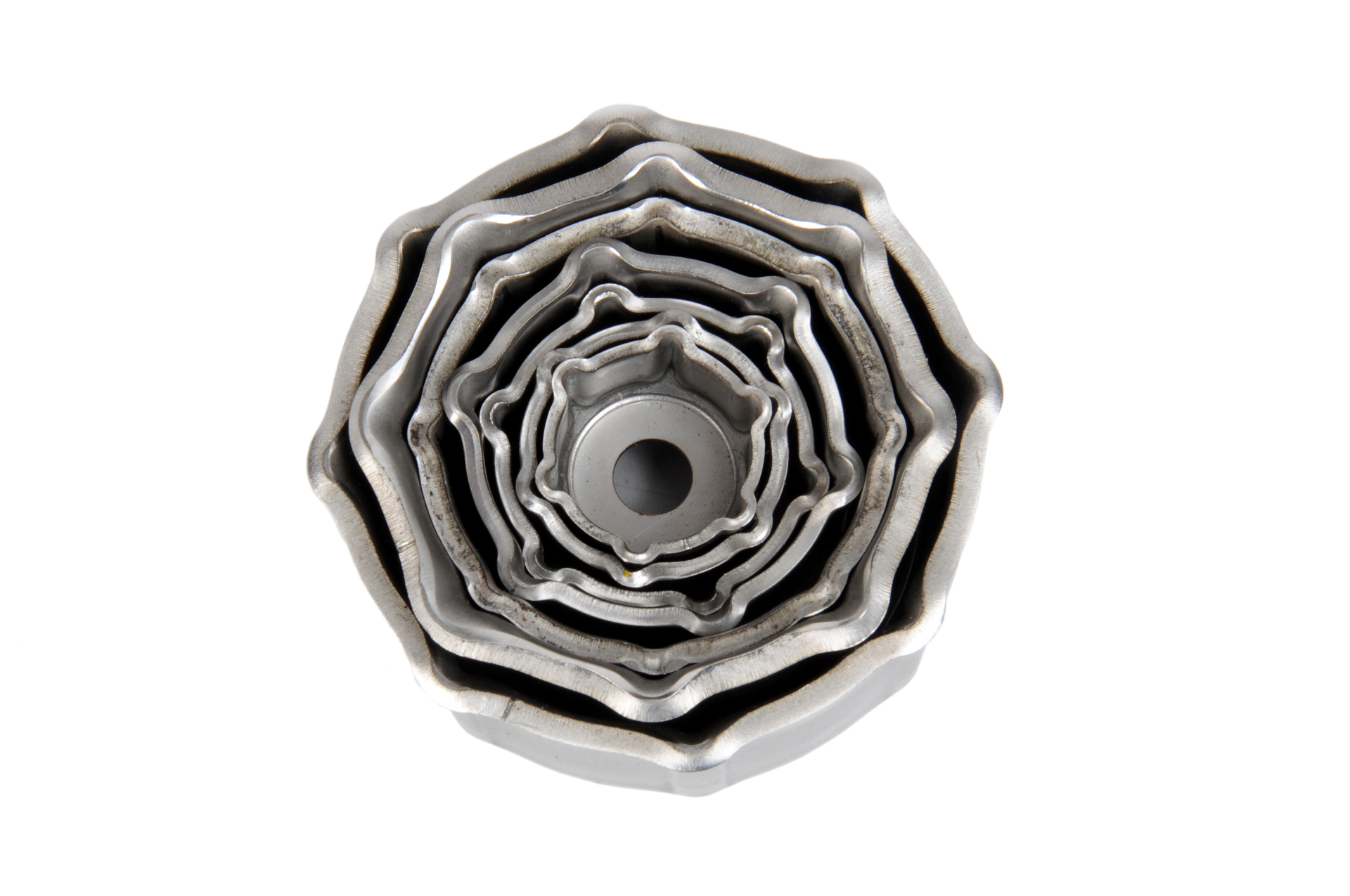In today’s industrial landscape, where production speed and efficiency have become critical, die systems are an essential part of modern manufacturing lines. Particularly in metal forming processes, progressive dies play a key role by performing multiple operations in a single press stroke. This capability not only reduces labor requirements but also enables high-volume production in shorter times, while maintaining consistent quality across every part produced. For this reason, progressive dies have become indispensable solutions for companies aiming to strengthen their competitive edge.
A progressive die is a type of tool where a strip of metal advances through the die step by step, undergoing different operations—such as cutting, punching, bending, or forming—at each station until the finished part is completed. This system allows even complex components to be manufactured quickly and efficiently within a single die. Today, industries such as automotive, white goods, and electronics rely heavily on this technology. Progressive dies reduce production costs, minimize errors, and ensure consistent quality, making them one of the most preferred tooling systems for high-volume and precision manufacturing.

The success of a progressive die depends largely on its design process. Die design is not only about making a functional tool but also ensuring that the production line operates efficiently, safely, and economically. During the design phase, material flow is optimized, tolerances are maintained, and waste is minimized.
Thanks to modern CAD/CAM software, die design has become more accurate and reliable. Simulation tools allow manufacturers to test and refine the production process virtually, preventing potential issues before actual production begins. This approach saves both time and cost while extending the die’s lifespan and guaranteeing consistent product quality. Therefore, the design phase is considered the most critical and strategic stage of any progressive die project.
Once the design phase is complete, progressive dies are typically manufactured from high-durability steel, as they must withstand millions of press cycles and maintain long-term performance. The manufacturing process involves careful planning—from material selection and precision machining to heat treatment and assembly.
Assembly and testing are also critical stages. Before being integrated into the production line, each die is tested through sample runs to ensure optimal performance, with fine adjustments made as needed. Well-executed production processes extend the die’s service life, minimize maintenance costs, and ensure uninterrupted operation. Detailed quality control during these stages guarantees stable production performance. A well-planned and precisely executed manufacturing process provides companies with both high efficiency and long-term cost benefits.
The advantages of progressive dies stand out in several aspects of industrial manufacturing efficiency. One of the most significant benefits is high production speed—multiple operations can be performed simultaneously within a single die. Automated strip feeding reduces labor costs, minimizes human error, and ensures consistent product quality.
Progressive dies are also highly material-efficient, designed to minimize scrap and optimize raw material use—resulting in direct cost savings. Long-lasting steel dies reduce maintenance frequency, offering long-term financial benefits to manufacturers. Additionally, their adaptable structure allows flexible production across various part types. High precision also minimizes the need for secondary processing, ensuring continuity on the production line and enhancing customer satisfaction.
In highly competitive industries, speed is one of the most crucial factors for maintaining market leadership. High-speed production tools are a core application area for progressive systems. These systems can produce hundreds of parts per minute while maintaining consistent quality.
Industries such as automotive, electronics, and fasteners particularly benefit from these systems due to their ability to manufacture small, complex components with exceptional accuracy. As a result, companies can deliver orders on time without production interruptions. Furthermore, high-speed systems reduce labor costs and enable more efficient production structures. With digital monitoring and early detection of potential errors, productivity increases even further.
The cost of progressive dies varies depending on material quality, number of stations, and part complexity. Although the initial investment may be higher than that of standard dies, the long-term savings and performance advantages make it a highly cost-effective investment.
By working with the right manufacturer, you can extend die life, lower maintenance costs, and ensure consistent production. This not only strengthens competitiveness but also allows for more predictable and sustainable production. Progressive dies minimize production losses and support sustainable manufacturing models—ensuring long-term quality, efficiency, and customer satisfaction.
One of the most important factors in progressive die production is choosing the right partner. An experienced manufacturer with strong engineering capabilities can offer valuable consultancy during the design phase and develop dies tailored to your production line. The partner’s technical expertise and production know-how make a significant difference in both performance and cost efficiency.
Selecting the right partner not only meets your current production needs but also supports your future growth plans. A skilled and flexible manufacturer can develop customized solutions that keep you one step ahead in the market. A reliable partner quickly addresses potential issues, ensuring production continuity and consistent quality standards. Through long-term collaboration, die maintenance, revisions, and new projects can be managed efficiently—leading to sustainable productivity improvements.
In mass production, progressive dies offer the ideal balance of quality, speed, and cost efficiency. When designed with precision, manufactured with high-quality materials, and supported by expert craftsmanship, they deliver long-term value for manufacturers. They ensure uninterrupted production, consistent dimensional accuracy, and superior part quality.
If you aim to enhance efficiency, reduce costs, and gain a competitive advantage in your production line, we’d be happy to support you.
At Çelik Kalıp, we design and manufacture custom progressive die solutions tailored to your needs, combining advanced technologies with innovative production methods to achieve the highest quality standards.
Our experienced team develops optimized, customer-specific solutions that streamline your production process. You imagine it — we create it. Achieve both time and cost efficiency with Çelik Kalıp’s trusted expertise.